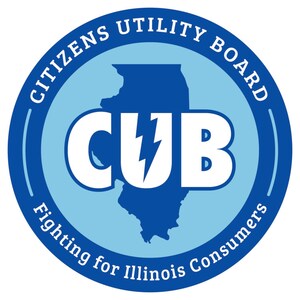Watchdogs Warn Legislation Could Strip AT&T's Most Vulnerable Customers Of Affordable, Reliable Phone Service
CHICAGO, April 19, 2017 /PRNewswire-USNewswire/ -- AT&T is pushing state legislation that would lead to the end of traditional home phone service in its Illinois territory, and could deprive vulnerable customers of their most affordable, reliable connection to vital services, such as 911 and medical monitoring, consumer advocates warned Wednesday.
AARP Illinois, Illinois PIRG and the Citizens Utility Board (CUB) say it's premature to end traditional landline service for customers who choose it, while the Federal Communications Commission (FCC) is still grappling with how to protect consumers and foster healthy competition as phone service transitions to other technologies. Plus, the consumer advocates say a recent wireless 911 outage shows that AT&T has yet to offer a viable alternative for a significant number of customers.
The groups urged Illinoisans to visit SaveOurPhoneService.com to send messages telling legislators to oppose AT&T's deregulation bills, Senate Bill 1381/House Bill 2691. Consumers also can call a special hotline, at 1-844-220-5552, to talk to their legislators. With Illinois' Telecommunications Act under review and set to expire July 1, AT&T's bills would:
- Abolish the state requirement that AT&T serve traditional landline customers. That authority would be ceded to the FCC, and Illinois would be stripped of any meaningful oversight to protect AT&T's 1.2 million business and residential landline customers from inferior service.
- Abolish low-cost calling plans. The General Assembly mandates that AT&T offer three "Consumer's Choice" plans, which were created by CUB under a legal settlement. Illinois' best local phone deals, which cost about $3 to $20 a month, have saved callers millions of dollars, and are under a state-mandated price freeze.
AT&T claims its legislation would protect landline customers. But those "protections" are weak at best. Only individuals—not groups of customers—could petition the Illinois Commerce Commission to save their landline service, and they would be forced to prove that they have no other telecom option.
"We have strong concerns regarding how this legislation is set up, especially when it comes to ensuring consumer protections," said Bob Gallo, State Director for AARP in Illinois. "As telecommunications companies continue working on deregulating the industry at the federal and state level, it will be much harder to restore any safety nets for consumers."
"AT&T's proposal could condemn a significant number of Illinois residents to inferior service, at higher cost, with less consumer protections," Illinois PIRG Director Abraham Scarr said. "The General Assembly should reject this irresponsible policy."
"There are a significant number of consumers who still depend on traditional home phone service as their most affordable and reliable telecom option—and they shouldn't have that choice stripped away," CUB Executive Director David Kolata said. "AT&T's legislation is sorely lacking in consumer protections, and the company makes no promise to build up its communications network. The company's most loyal customers deserve better than to get cut off from vital services so AT&T can increase profits."
AT&T, which made about $13 billion in profits last year, has passed legislation in other states in order to be able to push people off of landlines once the FCC gives final approval for such a move.
While AT&T argues that customers have many choices, a landline is still the most affordable and reliable choice for a significant number of Illinoisans. They include rural customers frustrated by poor cellphone service, families on fixed incomes who need a connection to job opportunities, and seniors who see the landline as their primary lifeline to vital services such as 911, medical alert services (such as pacemakers), and home security systems.
Forcing people onto alternatives, such as wireless or computer-based phone service, could subject them to higher bills, lack of service in extended power outages, spotty reception and dropped calls. In March, for example, a wireless 911 outage outside Illinois hit AT&T wireless customers in 14 states for about five hours, forcing police departments to urge people to call alternative numbers in an emergency.
AARP is a nonprofit, nonpartisan organization, with a membership of nearly 38 million, that helps people turn their goals and dreams into real possibilities, strengthens communities and fights for the issues that matter most to families such as healthcare, employment and income security, retirement planning, affordable utilities and protection from financial abuse. AARP has staffed offices in all 50 states, the District of Columbia, Puerto Rico, and the U.S. Virgin Islands. Learn more at http://states.aarp.org/region/illinois/.
Illinois PIRG is a consumer group that stands up to powerful interests whenever they threaten our health and safety, our financial security or our right to fully participate in our democratic society. For decades, the group has stood up for consumers, countering the influence of big banks, insurers, chemical manufacturers and other powerful special interests. Learn more at www.illinoispirg.org.
CUB is Illinois' leading nonprofit utility watchdog organization. Created by the Illinois Legislature, CUB opened its doors in 1984 to represent the interests of residential and small-business utility customers. Since then, CUB has saved consumers more than $20 billion by helping to block rate hikes and secure refunds. For more information, call CUB's Consumer Hotline at 1-800-669-5556 or visit www.CitizensUtilityBoard.org.
SOURCE Citizens Utility Board
Related Links
WANT YOUR COMPANY'S NEWS FEATURED ON PRNEWSWIRE.COM?
Newsrooms &
Influencers
Digital Media
Outlets
Journalists
Opted In





Share this article